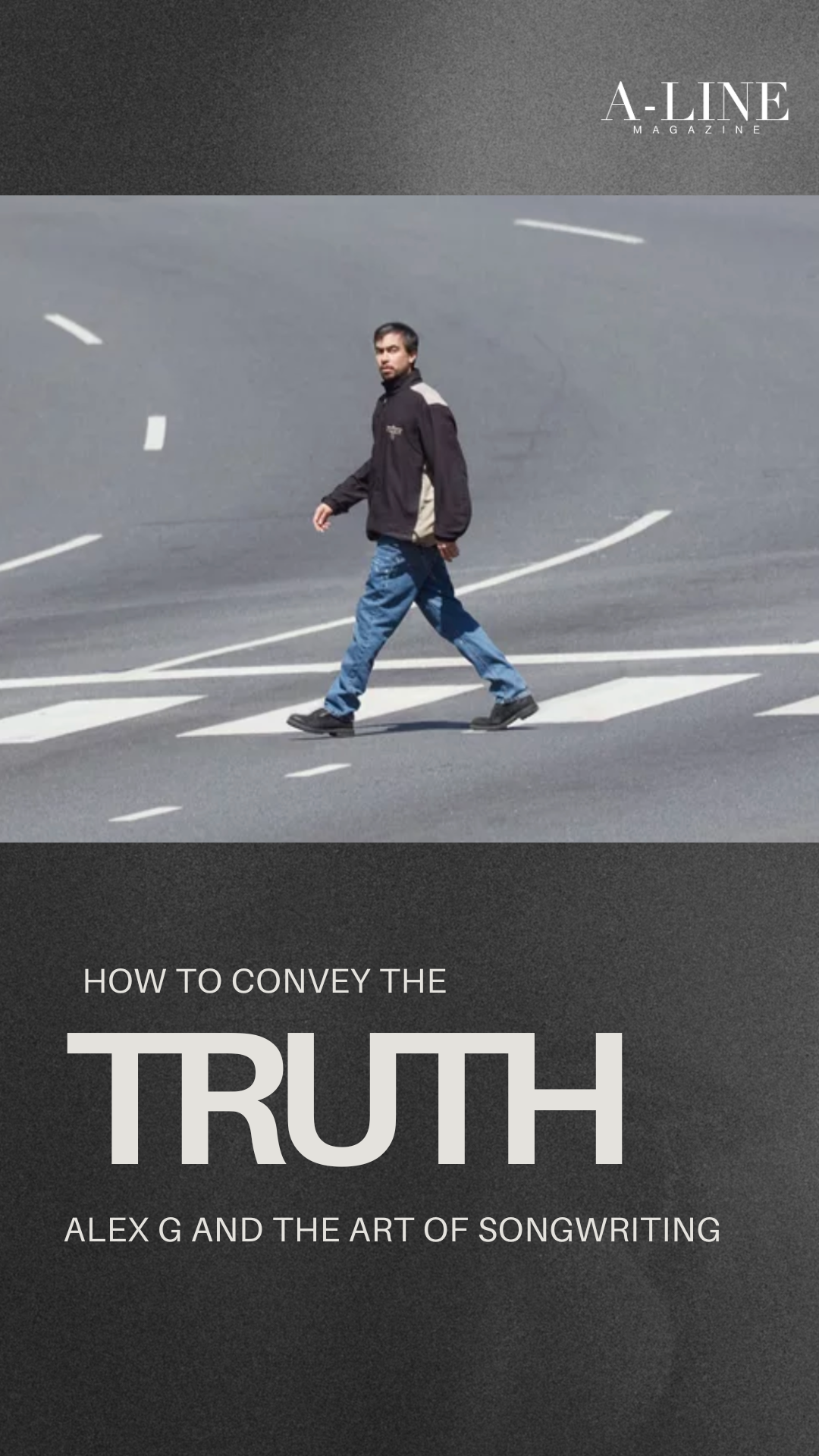How to Convey the Truth
“I paint pictures of my heart, the colors blue and purple start to bleed into an endless dark; it’s only you, it’s only you. I’d burn them for you if you want me to.”
- Bobby
Music exists for many reasons. It is ritualistic, it is entertaining, it is emotionally communicative, it is and has been a culturally load-bearing form of media throughout all of recorded history. The overwhelmingly central theme of most if not all music is that it carries feeling in some form. This idea has folded in on itself countless times with the general evolution of culture; perhaps a piece of music exists specifically to carry no feeling, but that in of itself is feeling nonetheless. Music is an incredibly important and powerful tool for this specific use, and for millennia man has developed more interesting and complex ways to carry feeling from writer, composer, or performer, to listener. Music can be crudely categorized into “vocal” and “instrumental,” that is, music with or without a vocal or lyrical aspect. While the emotional capacities of instrumental music exist within and throughout both types of music, the addition of vocals adds a much more streamlined and digestible outlet through which feeling can be captured, transmuted, and shared. It is here, in the voices sung into microphones, where stories are told and immortalized, where minds are displayed for universal dissection and, hopefully, understood.
“Everybody wants you, yeah, everybody loves you; your smile, your teeth, your hair; They don’t know you’re not there, they don’t know you’re not there”
- The Same
Alex Giannascoli has been releasing music under the abbreviation “Alex G” since 2010 to his bandcamp page, eventually signing to a record label in 2014 to continue music as a professional endeavor. In his 13-year career as a singer/songwriter and multi-instrumentalist, he has released 10 studio albums and an original motion picture soundtrack. While Alex G has reached critical acclaim with many of his releases, the most prominent aspect of praise he has received over his career has been that of his ability as a songwriter. Whether it be on American Songwriter, Pitchfork, Vice, The Fader, or any of the other publications with a chance to interview Alex G, questions always land on his rudimentary and deeply emotional songwriting process. His music focuses on his writing, building songs from scratch in his apartment, recording and rerecording and rerecording everything himself, only calling bandmates in to play a part if he cannot. The product: beautifully raw and unique indie rock/folk music, punctuated by simple guitar parts, gorgeous melodies, and uniquely emotionally potent lyricism.
“I see great waves coming our way, beautiful sunsets on lost and lonely days. Infinite futures become a single past; everyone whimpers, nobody lasts”
- Miracles
The fascination around Alex G and his lyrics begins to unfold with the context that while he has released such a large quantity of music, his personal life remains almost entirely unknown. He includes very personal stories in his music, but mixed in with stories from people he knows, stories he made up, songs from differing points of view, songs based around fictional characters, or tracks comprised of an amalgamation of some or all of these sources. Alex G’s music rarely exists to tell a specific story, but instead, lines are written and songs are structured entirely in support of the preservation of a particular moment in time, a specific feeling or emotion. The outcome of such a process is often lyrics with several or many differing interpretations, all supporting the same general emotional theme. In this, his music reads similar to free-form poetry, with room for the listener to connect their own experiences to the emotions painted over his instrumentals. “Part of my goal is to make the angle unclear, even to myself. I just want to make it strike a chord.” A song to exemplify this effect is “Gnaw” from his 2010 album “Race.” The lyrics of this song have been theorized to discuss any of the following: sexual assault, a one-sided relationship, homosexuality on the part of the narrator and on the part of the subject of the song, or the denial and avoidance of one’s emotions. The final ingredient in the phenomenon that has made Alex G is his reluctance to comment on the validity of any theories created in response to his music, as oftentimes, there is no “correct” interpretation. In this, every interpretation can be seen as valid, as true, as long as it resonates with somebody.
“She loves me like a dog, and when we mess around, I’ll let her know the truth; I can’t rely on hope with fate, and every time I wake, I second guess the game I play; did I make a mistake?”
- Sarah
The result of this work is a catalog of music that is effectively nonsensical yet entirely relatable and extensively meaningful. Somehow, his music can be disjointed, hard to follow, overly poetic, and unreasonably vague, yet make complete sense. Alex G has mastered the art of making art that you can cry to without ever understanding, but at the end of the day, to cry to it is all the understanding that’s ever needed.
“I don’t want to see me, I want to be trapped in you; I don’t want to be me, but I’m gonna pretend for you.”
- Pretend
Written by Nathan Brooks, Social Media: Noa Shrikhande

